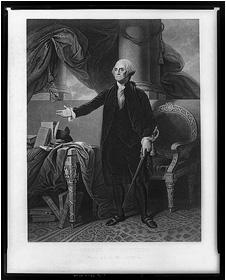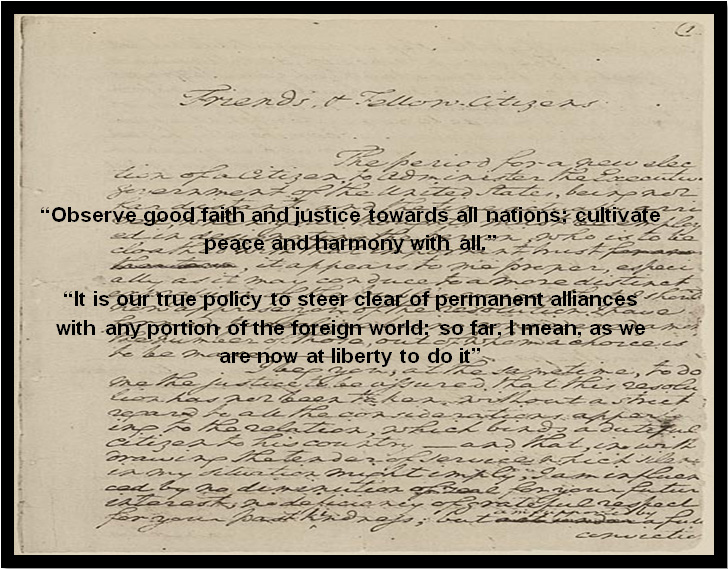
Source: George Washington,
Henry Sadd, Library of Congress.
In early 1796, President George Washington decided not to seek reelection for a third term and began writing his farewell address to the American people. In this address, he set forth his foreign policy, advising the United States on how to handle affairs with foreign countries. Read the excerpts from Washington's Farewell Address below.

Source: George Washington,
Henry Sadd, Library of Congress.

Source: The Electoral College Vote of 1824, Vote, President Elect
→Analyzing the document – How did Washington advise the country to deal with other nations? What does “cultivate peace and harmony with all” mean?
Washington, in his farewell address, warned the nation against joining long-term alliances with other nations. He urged Americans to create peaceful relationships with foreign countries. Although Washington warned Americans to avoid foreign quarrels, other countries would not allow the United States to remain neutral.
In Europe, France was involved in its own turmoil: the French Revolution. At the conclusion of the French Revolution, Napoleon Bonaparte became the leader of France. He, in turn, tried to conquer the rest of Europe. This action led Great Britain to declare war on France. Although these events occurred in Europe, they eventually caused the War of 1812 in North America which eventually involved the United States. The war lasted until 1815.
In this resource, you will learn about the causes of the War of 1812 and examine the major events and historical figures involved.

![]() Click here to watch a quick video about the War of 1812.
Click here to watch a quick video about the War of 1812.